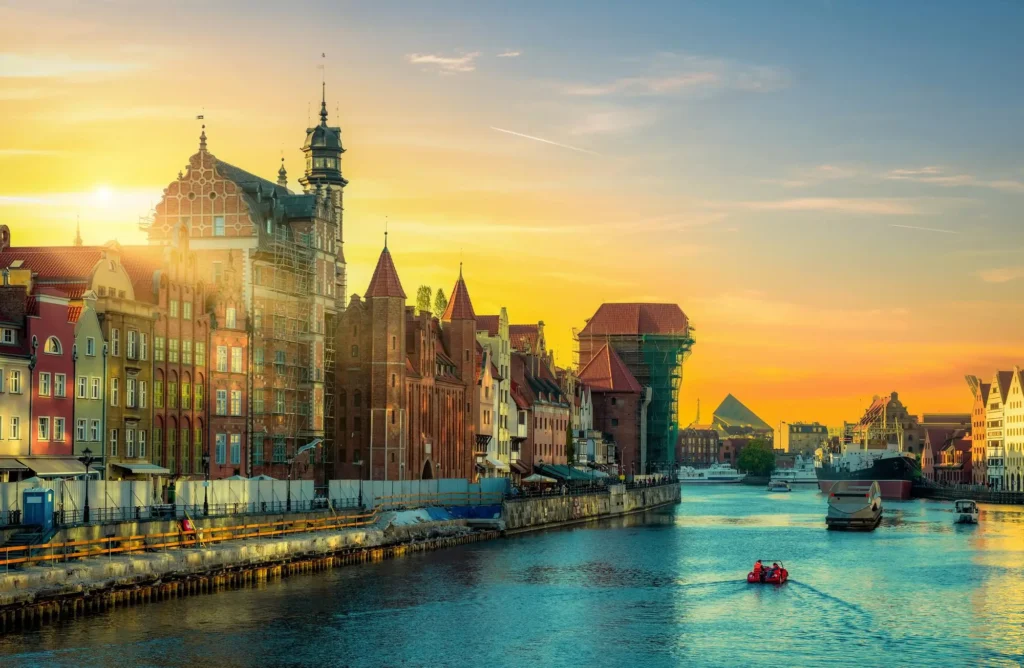SOMANS GLOBAL EDUCATION PVT.LTD.

Study in Poland
The opportunities to study in Poland are abundant. Poland offers you a better standard of living at a very low cost. For international students aiming to study in Europe at lower costs, studying in Poland is a better choice. Around 10,5000 international students study in Poland every year, as per the report of Statista. There are around 440 higher education institutions in Poland out of which 133 are public. Poland also follows European education system. Medicine, IT, Business, Engineering, Arts, Social Science, Aviation etc. are the domains of study in Poland. Part time work hours for students are 20hours per week. All these benefits conjointly make this uplifts this country’s position as the best ever choice for international students.
Top Benefits of Study in Poland
Studying in Poland offers a range of benefits for international students, combining quality education with an enriching cultural experience. Here are the top reasons to consider Poland as your study destination:
Polish universities are renowned for their high standards and adherence to the Bologna process, ensuring that degrees are recognized internationally. With over 450 higher education institutions, Poland emphasizes practical knowledge alongside theoretical learning.
Poland is an attractive option for students due to its lower tuition fees and living expenses compared to other European countries. The cost of living is manageable, with options for economical accommodation and transportation.
Poland offers a dynamic student life with a blend of academic rigor and leisure activities. From music festivals to nightlife and cultural fests, students can enjoy a balanced lifestyle.
Poland's rich history and cultural diversity provide a unique learning environment outside the classroom. Students can explore UNESCO sites, museums, and historical landmarks, enriching their educational experience.
The country is home to a vibrant research community, offering numerous opportunities for innovation and intellectual growth across various fields. This makes Poland an ideal place for students aspiring to pursue careers in academia, industry, or entrepreneurship
A variety of scholarships and funding opportunities are available for talented international students, provided by universities, the Polish government, and external organizations. These scholarships cover tuition fees, living expenses, and more, making education more accessible.
International students in Poland can work part-time during their studies and explore job opportunities post-graduation, benefiting from the country's growing economy and favorable work permit policies
Poland is one of the safest countries in Europe, offering a secure environment for students. Universities prioritize the well-being of their students, providing support services and ensuring a safe campus.
With over 57,000 international students, Poland boasts a welcoming and diverse academic community. This multicultural setting fosters global connections and cultural exchange.

Top Universities in Poland
Top Courses to Study in Poland
| Accounting | Computer Science or IT field |
| Engineering | Environmental Studies |
| Food Science | Business Administration |
Admission Requirements to Study in Poland
- 10th and 12th (for bachelor’s course)
- Bachelor's degree certificate, individual Marklists (for master’s course)
- Resume or CV
- IELTS-6.0/6.5
- Medium of Instruction
- Scanned copy of the passport
- Statement of Purpose
- Letter of recommendation (2 Nos)
- Experience Letter (if applicable)
Poland student visa requirements
- Your passport. The passport must be valid and it must have two blank pages for the visa stamp.
- Poland visa application form. The application form can be found online at the E-Konsulat website or physically at the Polish embassy or consulate.
- Two photos of yourself. The photos should be 35x40mm in dimension and should be taken in front of a white background.
- Proof of travel health insurance. Health insurance must be valid in all Schengen countries and it should cover €30,000.
- Cover letter. The cover letter should state your visit purpose and itinerary.
- Proof of accommodation from University
- Proof of sufficient funds in the form of credit card statement
- Proof of a flight reservation or itinerary and return ticket
- Visa Fees- Approx Rs.8000 to 13000
- Letter of invitation from university
- Academic Documents
F. A. Q
FAQs on the Student Visa
To qualify all international applicants must first meet the minimum requirements for entry into higher education in their own country, have a matriculation certificate or equivalent document; command of English (at least on an intermediate level) is also required.
Some departments of the arts, physical education, departments preparing students for the teaching profession, medical and technical universities may organize additional aptitude tests.
Non EU students need to arrive in Poland with a student's visa obtained at a Polish Embassy or Consulate in their country of residence. It is important to remember that visas are granted for a maximum of three months. In order to extend the stay in Poland, it is necessary to apply for a residence permit for specified period of time in Voivodeship office. More practical information about: coming to Poland, legalizing your stay, medical care and insurance, driving license, addresses of diplomatic missions of in Poland is available at www.msz.gov.pl (Polish Ministry of Foreign Affairs).
Medical care in Poland is not free of charge. Health insurance is mandatory for all students for the entire duration of their stay in Poland
You can appeal against the rejection of your Polish study visa request by a Polish embassy or consulate. The appeal must be filed within 14 days of the rejection.
To appeal against the decision, you must visit the concerned embassy or consulate with your passport, copy of the refusal letter, appeal letter, and the receipt of the new visa fee payment. You must pay the visa fees again if you want to appeal against the decision.
The appeal letter must address all the points mentioned in the refusal letter that led to the rejection of your visa. Legal reasoning must be provided in your appeal letter.

